#mother radha
Text
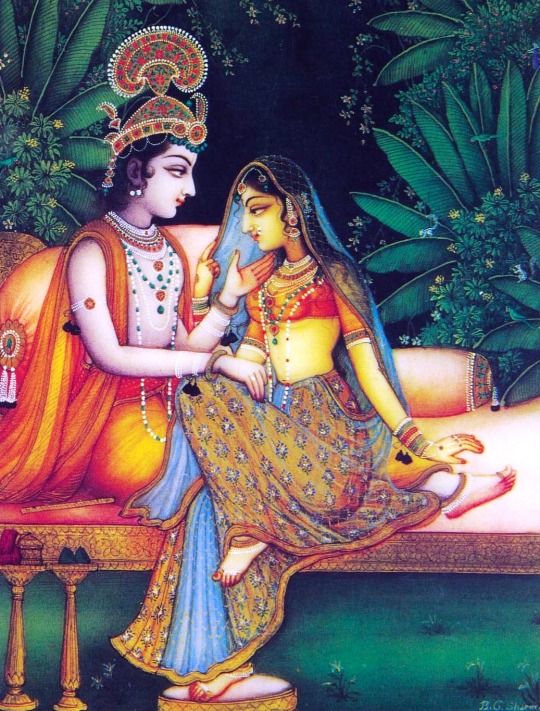
Sri Radhika Stotra 108 Names of Srimati Radharani
by Srila Raghunatha Dasa Goswami
aviksatmesvari kascid vrndavana-mahesvarim
tat padamboja-matraika gati dasyati katara
patita tat-saras tire ruda tyartha-ravakulam
tac chri-vaktreksanavaptyai namanyetani sanjagau
Some maidservant, unable to find her Mistress, has fallen on the bank of Radhakunda, crying in great anxiety, being very eager to take exclusive shelter of Her Lotus Feet, glorifying Her by singing the following names of Her Mistress:
radha gandharvika gosthayuva-rajaika-kamita
gandharva radhika candrakantir madhava-sangini
Radha, 2. Gandharvika, 3. The only girl desired by the prince of Vraja, 4. Who is worshipped by the Gandharva-angels, 5. Whose luster is like the moon, 6. Who accompanies Madhava.
damodaradvaita-sakhi kartikotkirtidesvari
mukunda dayita-vrnda dhammilla mani-manjari
Damodar’s unrivalled girlfriend, 8. The queen who bestows fame on the Kartika month, 9. The crestjewel of Mukunda’s ladyfriends.
bhaskaropasika varsabhanavi vrsabhanuja
ananga manjari jyestha sridama varajottama
Who worships the sun, 11. Who belongs to King Vrsabhanu, 12. Who is born from King Vrsabhanu, 13. Ananga Manjari’s older sister, 14. Sridama’s younger sister, 15. The greatest
kirtida-kanyaka matr-sneha-piyusa-putrika
visakha-savayah prestha visakha jivitadhika
Kirtida’s daughter, 17. Who is the nectarean object of Her mother’s affection, 18. Who is of the same age as Visakha, 19. Who is dearer than life to Visakha.
pranadvitiya lalita vrndavana viharini
lalita prana-laksaika-raksa vrndavanesvari
Who is none other than Lalita’s very life, 21. Enjoys in Vrndavana, 22. Who saves Lalita’s life lakhs of times, 23. Queen of Vrndavana.
vrajendra-grhini krsna-praya-sneha-niketanam
vraja go-gopa-gopali jiva-matraika-jivanam
Who is as dear to Mother Yasoda as Krsna, 25. Who is the only life of the life of the cows, cowherdsmen and cowherdgirls of Vraja.
snehalabhira-rajendra vatsalacyuta-purva-ja
govinda pranayadhara surabhi sevanotsuka
Who is the object of King Nanda’s affection, 27. Who gets parental affection from Balaram, 28. Who is the object of Govinda’s love (Govinda is eager to serve His surabhi cows).
dhrta nandisvara-ksema gamanotkanthi-manasa
sva-dehadvaitata drsta dhanistha dhyeya-darsana
Who is very eager to go to Nandisvara for serving Krsna, 30. Who is regarded as non-different from her by Dhanistha and seen in her meditations, (Dhanistha is Yasoda’s maidservant).
gopendra-mahisi paka-sala-vedi prakasika
ayur-varddha-karaddhana rohini ghrata-mastaka
Who is seen in Mother Yadosa’s kitchen, 32. Whose cooked grains increase Krsna’s life, 33. Whose head is smelt by Rohini.
subala nyasta sarupya subala priti-tosita
mukhara-drk sudha-naptri jatila drsti-bhasita
Who has bestowed a form equal to Hers to Subala, 35. Who is very fond of Subala, 36. Who is nectar in Mukhara’s eyes, 37. Who is afraid to see Her mother-in-law, Jatila.
madhumangala narmokti janita-smita-candrika
paurnamasi bahih khelat prana-panjara sarika
Who smiles like the moonbeams after hearing Madhumangala’s jokes, 39. The she-parrot of Whose heart is caught in Paurnamasi’s cage.
sva ganadvaita jivatuh sviyahankara-vardhini
sva ganopendra padabja sparsa-lambhana harsini
Who is the only life of Her friends, 41. Who increases the pride of Her relatives, 42. Who is very happy to touch Upendra’s feet with Her friends.
sviya vrndavanodyana paliki krta-vrndaka
jnata vrndatavi sarva lata-taru-mrga-dvija
Who has placed Vrnda in charge of Vrndavana’s gardens, 44. Who is known by all the vines, trees, deer and birds of Vrndavana.
isac candana samghrsta nava-kasmira-deha-bhah
java-puspa pritha-hari patta cinarunambara
Whose body shines with fresh vermillion ground with some sandalpaste, 46. Whose silken dress shines more reddish than the java flower.
caranabja-tala-jyotir arunakrta-bhutala
hari citta camatkari caru nupura nihsvana
Whose lotus footsoles make the surface of the earth shine crimson-red, 48. Who astonishes Hari’s mind with the sweet sound of Her anklebells.
krsna-sranti-hara sroni pitha-valgita ghantika
krsna sarvasva pinodyat kucancan mani-malika
The nice sounds of whose waistbells remove Krsna’s fatigue, 50. The pearl necklace on whose firm, raised breasts is everything to Krsna.
nana-ratnollasad sankha-cuda caru bhuja-dvaya
syamantaka-mani bhrajan mani-bandhati-bandhura
Whose two beautiful arms are adorned with conchshell bangles inset with various jewels, 52. On Whose wrist the beautiful Syamantaka jewel shines.
suvarna darpana-jyotir ullanghi mukha-mandala
pakka dadima bijabha dantakrstaghabhic chuka
The shining of Whose face defeats that of a golden mirror, 54. Whose teeth, that shine like ripe pomegranate seeds, attract the parrot-like Aghabhit (Krsna).
abja-ragadi srstabja-kalika karna-bhusana
saubhagya kajjalankakta netranandita khanjana
Whose ruby earrings are shaped like lotus buds, 56. Whose wagtail-like eyes are anointed with beautiful eyeliner, giving great joy to the eyes.
suvrtta mauktika mukta nasika tilapuspika
sucaru nava-kasturi tilakancita-bhalaka
Whose nose, that is beautiful as a sesame flower, is adorned with a round pearl, 58. Whose forehead is adorned with beautiful tilak made of fresh musk.
divya veni vinirdhuta keki-pincha-vara-stutih
netranta-sara vidhvamsakrta canurajid dhrtih
Whose divine hairbraid is worshiped by peacock feathers (being defeated in beauty), 60. The arrows of Whose glances destroy the patience of Krsna, Who defeated the Canura wrestler.
sphurat kaisora-tarunya sandhi-bandhura-vigraha
madhavollasakonmatta pikoru madhura-svara
Who is blooming teenage beauty personified, 62. Who pleases Madhava, 63. Who maddens Madhava with Her sweet, cuckoo-like voice.
pranayuta-sata prestha madhavotkirti-lampata
krsnapanga-tarangodyat smita-piyusa-budbuda
Who is more attached to Madhava’s great glories than to millions of lives, 65. Whose nectarean smiles provide bubbles on the waves of Krsna’s glances.
punjibhuta jagallajja vaidagdhi-digdha-vigraha
karuna vidravad deha murtiman madhuri-ghata
Who is the very form of cleverness, embarrassing the whole world, 67. Whose body melts in kindness, 68. Who is abundant sweetness personified.
jagad-gunavati-varga giyamana gunoccaya
sacyadi subhaga-vrnda vandyamanoru-saubhaga
Whose glories arre loudly sung by all the great ladies of the world, 70. Who is incessantly praised by beautiful ladies like Saci.
vina-vadana sangita rasalasya visarada
narada pramukhodgita jagad anandi sad-yasah
Who is expert in singing and playing vina in the rasa dance, 72. Whose pure glories are sung by sages headed by Narada, giving joy to the world.
govardhana-guha geha grhini kunja-mandana
candamsu-nandini baddha bhagini-bhava-vibhrama
She is the housewife in the caves in Govardhana, 74. She decorates the kunja, 75. She has a sisterly relationship with Yamuna, (Yamuna is the daughter of the sun and Radha is thedaughter of Vrsabhanu, the sun in Taurus).
divya kundalata narma sakhya-dama-vibhusita
govardhanadharahladi srngara-rasa-pandita
She is adorned with the wreath of divine Kundalata’s friendship, 77. She is the professor in amorous rapture, giving joy to the holder of Govardhana.
girindra-dhara vaksah srih sankhacudari-jivanam
gokulendra-suta-prema kama-bhupendra-pattanam
She is Laksmi on the chest of the holder of Govardhan, 79. She is the life of the enemy of Sankhacuda, 80. She is the settlement of Cupid for the love of the son of Gokulendra.
vrsa-vidhvamsa narmokti sva-nirmita sarovara
nija kunda-jala-krida jita sankarsananuja
Who made Her own pond after the killer of Arista mocked Her, 82. Who defeats Sankarsana’s younger brother in sports in Her own pond.
mura-mardana mattebha vihara-mrta-dirghika
girindra-dhara-parindra rati-yuddhoru simhika
She is the ambrosial pond of enjoyment for the intoxicated elephant who defeated Mura, 84. She is a powerful lioness fighting amorous sports with the king of lions, the holder of the best of mountains.
sva tanu-saurabhonmatti krta mohana madhava
dor-muloccalana krida vyakuli-krta kesava
Who enchants Madhava with Her intoxicating bodily fragrance, 86. Who agitates Kesava by playfully showing Her armpit.
nija kunda-tati kunja klrpta keli kalodyama
divya malli-kulollasi sayyakalpita vigraha
Who expands Her artful plays in the kunja on the bank of Her own pond, 88. Who makes a bed of divine jasmine flowers there with joy.
krsna vama-bhuja nyasta caru daksina gandaka
savya bahu-lata baddha krsna daksina sad-bhuja
Who places Her beautiful right cheek on Krsna’s left arm, 90. Who holds Krsna’s right arm with Her left vine-like arm.
krsna daksina caruru slista vamoru-rambhika
girindra-dhara drg-vaksor mardi-sustana-parvata
Whose beautiful, broad, banana-like left hip touches Krsna’s right hip, 92. Whose nice, mountain-like breasts are being massaged by the Holder of Govardhana.
govindadhara piyusa vasitadhara-pallava
sudha-sancaya carukti sitali-krta madhava
Whose leaf-like lips are scented by the nectar of Govinda’s lips, 94. Whose beautiful words distribute nectar, cooling Madhava off.
govindodgirna tambula raga rajyat kapolika
krsna sambhoga saphali-krta manmatha sambhava
Whose cheeks are colored by the pan from Govinda’s lips, 96. Who realizes Krsna’s fancies of amorous enjoyments.
govinda marjitoddama rati-prasvinna sanmukha
visakha vijita krida-santi nidralu-vigraha
The profuse perspiration from whose face is wiped off by Govinda, 98. Who is being fanned by Visakha when She falls asleep after playing with Krsna.
govinda-carana-nyasta kaya-manasa jivana
svapranarbuda nirmanchya hari pada-rajah kana
Who has placed Her life, body and mind at Govinda’s lotus feet, 100. Who worships the dust of Hari’s lotus feet with billions of hearts.
anumatracyutadarsa sayyamanatma locana
nitya-nutana govinda vaktra-subhramsu-darsana
Who curses Her eyes for every second that they do not see Acyuta, 102. Who beholds Govinda’s ever-fresh moonlike face.
nihsima hari-madhurya saundaryadyeka-bhogini
sapatnya dhama murali-matra bhagya kataksini
Who is the only enjoyer of Hari’s endless sweetness and beauty, 104. Who can only blink at the fortune of Her co-wife, the Murali flute.
gadha buddhi-bala krida jita vamsi-vikarsini
narmokti candrikotphulla krsna kamabdi-vardhini
Who takes Krsna’s flute after defeating Him in a gambling match, 106. Who increases the ocean of Krsna’s desires by the full moonbeams of Her joking words.
vraja-candrendriya-grama visrama-vidhu-salika
krsna sarvendriyonmadi radhetyaksara-yugmaka
Who is the moonlike resting place for all the senses of the moon of Vraja (Sri Krsna), 108. The two syllables of Whose name Ra-dha madden all of Krsna’s senses.
idam sri radhika namnam astottara satojjvalam
sri radhalambhakam nama stotram caru-rasayanam
yo dhite parama pritya dinah katara-manasah
sa natham acirenaiva sa natham iksate dhruvam
Whoever recites these 108 names of Sri Radha, that consists of all beautiful, nectarean Radha-nama, with great love, humility and eagerness, will certainly and swiftly behold Her Master.
iti srimad raghunatha dasa gosvami viracita stavavalyam
sri radhika-stottara-sata nama stotram sampurnam.
Thus ends Sriman Raghunatha Dasa Gosvami’s Sri Radhika’s 108 names-prayer.
(text pasted from https://theharekrishnamovement.org/)
7 notes
·
View notes
Text
Since I began reciting the "Mahishasura Mardini Stotram", an eagerness to learn Bharatanatyam has taken hold of me. The power of my Devi over me is profound.
#desiblr#durga#mother#goddess#hindu mythology#poetry#krishna#bhagavad gita#radha krishna#krishnablr#mahabharata
20 notes
·
View notes
Text
.
#just now realized I have such a specific yearning for the parent-in-law and the widowed child-in-law dynamic#it’s stuck with me ever since I read the Ruth & Naomi story in some school textbook#even though I was raised without religion#Something about a relationship that is set up to be antithetical by society’s standards#and then in the aftermath of a tragedy should logically splinter#Instead becomes stronger#And they bond over the one whom they loved (or maybe in spite of them)#it’s why I also love the Radha and Thakur relationship from sholay an inordinate amount#And responsible for one of my OCs#Charvi#she is the wife of suratha#Dushala’s son who died after the war out of fear of Arjuna coming#Canonically dushala becomes regent for her grandson#I invented charvi out of frustration with his presumable mother being fridged#But I added her initially being at odds with her strong-willed kaurava mother-in-law#because she is much shyer and retiring#But in the aftermath of his death#They come together to raise their son/grandson and rule the kingdom#alia talks
5 notes
·
View notes
Note
Essentials 8 and codex 10 for all of your girls? :]
Ooooooh, these are interesting and very prone to anecdotes! èwé Meheheheheheheheh thank you!
More under the cut because again, it LONG and me WORDY.
Tis the prompt list, ask for some more if you'd like!
ESSENTIALS
8. Do they have any notable scars, markings, tattoos, etc.?
Alyra: Her Vallaslin is for Sylaise, in blue, it takes her brow, nose, chin and jaw. There's some on her back and upper arms and thighs, but it's not that extended. It wasn't a matter of pain tolerance, it was a matter that she didn't want to lose the whole day under the needle.
Lots of scars here and there, close range warriors make for scars. The most on her upper body and arms. A long slash on her collarbone, a puncture on her upper arm from that one time she got an arrow there (wouldn't recommend). The most noticeable one is on her face, she got scratched by the Archdemon, and no, it didn't help her in being less imposing than she was.
Raina: As above, she fights from close range, so more scars than others. A lot on her left ribcage, she leaves that side open and gets hit more often than not. Upper arms, she has a long one on her right thigh… And well, a long, jagged scar on her abdomen, a parting gift from the Arishok.
She has some scars she got in sillier ways (Trying to show Anders how to flip a throwing knife with a knife that wasn't a throwing one, she accidentally stabbed her palm. "Oops!") or are back from Lothering when she wasn't that skilled but got in brawls anyway, or that one time she wasn't that careful with a scythe and cut her foot. She will say it's all from epic fights, of course the number of enemies she faced increases over time, from one particularly vicious assassin to a band of ninja to a full platoon of angry Qunari.
Aisling: Ghilan'nain Vallaslin, in teal. It's not that big on her face, but it's pretty extended on her body, all sinewy, curve lines taking her whole back and snaking around her arms and legs, a couple of lines on her belly with a star right over her belly button. She fell asleep and the Keeper just... Went on. Some scratches here and there, but less than the others, fighting from range. One on her knees once that she fell badly, another on the side of her arm because she moved and a halla scratched her with a horn. She started really getting scars in Haven and in the Inquisition, with more consistent fighting and less people helping her. The most noticeable one is on her torso, she got stabbed in Crestwood because she slipped (Cullen wasn't informed, she said it was but a tiny scratchy. Actually the blade got to her kidney.). A slash on her thigh from the Arbor Wilds, one on her brow, right at the hairline, from Haven, she fell badly when she ran from the slavine.
Radha: Purple Vallaslin for Dirthamen, spikes and dots and claws on her cheeks, brow and chin, down her neck and upper arms, some on her thighs, and fingers. Broken nose in a brawl (no healer in sight, she just returned home with her face bloody and her nose crooked, and all three mages in camp had a fit she graciously dismissed because "it's no big deal, I straightened it.") , one on her upper brow, a long one on her left arm, two on both her knees (Pavyn: "RADHA!" Radha: "Wha-" *slips and falls knee first on a rock*), right palm and at the juncture between first and second phalanx, she grabbed a dagger by the blade and moved it away from her neck (another time of all three mages throwing a fit. "It's no big deal, the fucker didn't slash my throat.")
10. Have they ever been seriously injured? What was the outcome?
Alyra: Hit her head pretty badly at Ostagar with the Ogre, she jumped on it trying to reach its eyes and was thrown on the other side of the room like a ragdoll. The world started to spin, she started to respect Alistair as a warrior because he jumped in and saved her butt as she was down, she wouldn't have been able to dodge the charging ogre. Got cured by Morrigan and Flemeth in the end - she still has a void in memory from when Alistair charges in to when she woke up in Flemeth's hut.
Loghain wounded her badly too: she was not concentrated and calm enough to fight at her best. She got a deep gush in her waist, she concluded the duel and was victorious, but if she marched out of the room right after Loghain was ready to be six feet under it was all stubborness and refusal to be brought away by others. Collapsed right after the doors.
Got very badly wounded at the end of Awakening as well, in the battle with the (blasted) Brood Mother. Stabbed in the chest, she broke her sternum, femur and a tendril stabbed her and reached her lung. Was dragged out of the lair unconscious and bedridden for days.
Raina: She has a low pain tolerance, so she very rarely overdo it. She also learnt fighting from the street, whenever, and has no clear style you can predict. Beside the fact that she leaves her left ribcage open most often than not, she's a difficult adversary to fight.
She hit her head pretty badly after one year in Kirkwall (a prompt I'm writing actually!) and... "Oh well, I'll just lie there for a minute... Take a nap...".
The worst she got was with the Arishok. Oh she had her Benny Hill show moment of fucking running away from him, circling the columns and hitting quick and running away right after. But, she's tall. She's not used to fight in situation where she's the smaller one. He skewered her badly. She kept on and ended him but... Eh. Anders almost tied her to the bed to keep her still and let her heal (she was very miserable, she has difficulties staying put and doing nothing and... Picture a squirrel in a small cage.)
Aisling: Got stabbed pretty badly in Crestwood, trying to take Caer Bronach. It was raining, and raining makes her magic more difficult to use. Electricity and water don't go along, it's nice if she's the only one on the field but... With a party? Being on the back because she's fights from a range? It gets difficult to direct and control lightnings. So, usually, she just jumps in, get close and evokes electricity in very close range, just a little. Cassandra is used to it, Bull even more so, they fight well together (they have a safe word for when it happens! She just says "Apokolokynthosis!" and Bull knows she's running down his arm and to stay still). In Crestwood she had Blackwall and it was their first time fighting together... She barges in, Blackwall doesn't know it and turns to see what's going on. Aisling slipped to avoid an elbow on her nose. Got stabbed right in her belly, and the blade punctured her kidney. The perfect situation not to have brought Solas along, uh?
Garrett was there and healed her (except he's a blood mage and used blood magic. Fenris actually threatened to kill her himself if she said anything). She was down and put for a couple of days, she hates the scar because it got her Vallaslin.
And well. The Anchor counts? xD
Radha: She's cautious and doesn't jump into a fight head first. Worst she got was as above, that one time she grabbed a dagger by the blade, it was a slaver who thought that her playing defense was weakness and not observing the enemy. She stabbed him right in the eye soon after with his own blade, but well. Don't grab a knife by the blade at home. She got healed, but her right grip is not as strong as it used to be, tendons healed funny. She learnt to make her left hand her dominant one, tho.
#oc ask game#dragon age#character ask game#aisling lavellan#raina hawke#alyra mahariel#radha lavellan#Radha “It's just a flesh wound” Lavellan and he mother brother and sister fawning over her because IT'S NOT COME HERE
5 notes
·
View notes
Text

"In whichever direction you may turn your gaze, you will find One Eternal Indivisible Being manifested. . . it is He, it is That, which is styled as Pure Consciousness."
~ Sri Anandamayi Ma
("Sad Vani" #35, page 52)
#anandamayi ma#divine mother#spirtualquotes#jai ma#saints of india#spiritualawakening#divine love#goddess among us#om ma sharanam#divine feminine#god is love#radha krishna#om namo narayana
4 notes
·
View notes
Text
deva: a weapon.
the movie does everything to show us that deva holds no agency over himself or his actions and that he has no ambition whatsoever.
his main trait is loyalty, and this is emphasized again and again.
• he is enraged at the mistreatment of aadhya, but where an actual 'hero' would save her, disregarding any rules or conditions – he remains bound by his mother's words.

• he is a weapon in the hands of anybody he gives his loyalty to, and throughout the movie, all of his actions aren't really credited to him, but to the person he commits these acts for/with permission of:
1. in the first scene, we see both deva and varadha, without hesitation, understand that deva has to complete the task for varadha's honor

2. it's evident, when bilal tells aadhya, that the only person who can keep her safe is 'amma' (because it is true, only deva's mother can allow deva to help)

3. when we are first introduced to deva, it is through his mother describing him as a "blood-shedding weapon"
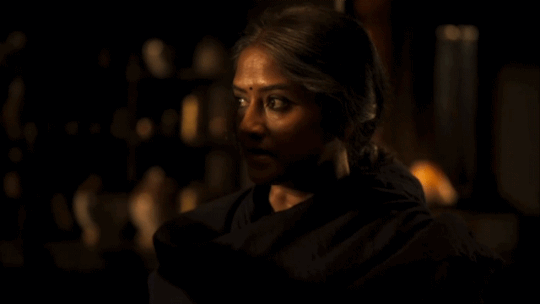
4. when varadha comes to ask deva to accompany him, the narration doesn't feel accurate. varadha has barely voiced his request for deva to go with him – it is actually deva who wants to protect him after seeing his condition, but the narration is:
"on one hand varadha had decided to take deva, no matter what, and on the other hand, his mother would not allow him to go"
further emphasizing that deva is comparable to an object between the only two people who 'own' him
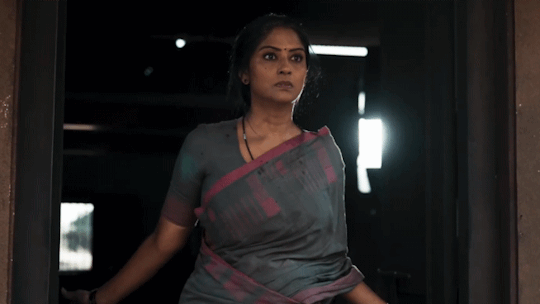
5. in the first action sequence, after his mother releases him from the promise he made to her, we have this shot:

framing deva's mother as if it is her who is responsible for that first blow
6. even after she has given him agency over himself, he still follows his mother's orders, not bothering to put any energy into what he thinks is the correct thing to do

7. we also see this when radha rama blames varadha for vishnu's death and has to be reminded that – no. it was the new guy who dealt the blow.
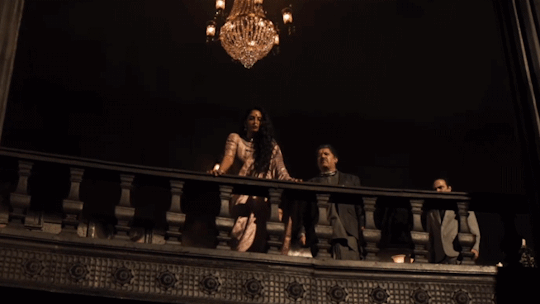
8. and again, when naarang heads in varadha's direction, completely disregarding deva and all of deva's attempts to provoke him, even though deva is the one who killed vishnu

it's an interesting way of depicting his personality – the movie equates him to a weapon at every turn, either metaphorically or though dialogue

which also makes it extremely significant, that the ONLY TIME deva has ever acted on his own (according to what we know) is when he:
1. went against his mother: to make a promise to varadha instead
2. did not follow varadha's explicit instructions: and pleaded with naarang to leave varadha alone
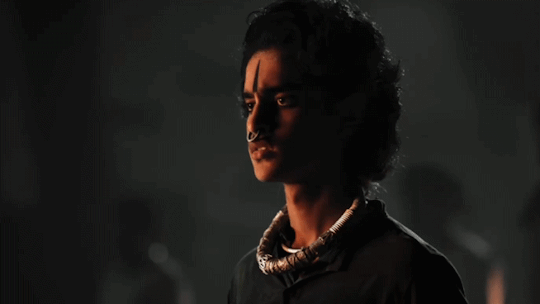
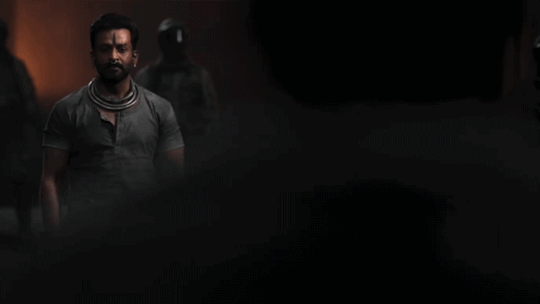
deva only breaks free from the narrative for varadha – which really speaks about varadha's importance and the power that varadha holds over deva.
#first point can alternatively be understood as: varadha honor IS deva's to protect#deva: a weapon to be wielded by those he gives himself to#character analysis#devaratha raisaar#salaar#prabhas#varadeva
204 notes
·
View notes
Text
PICK A CARD: MESSAGES FROM MAHADEVI (CREATOR OF THE UNIVERSE)



Top Left: 111 ; Top Right: 222; Bottom: 333
Disclaimer:
This is a general reading take what resonates and leave the rest
No one is allowed to copy my work under any circumstances
DM for a personal tarot reading
All personal readings are paid.
HAPPY RADHA ASTHAMI 🤍♥️🤍
🌸111🌸
Be grateful for all that you have. Be grateful for all that you have been blessed with. You may think you lack, but the truth says otherwise. You have the warmth of the sun, coolness of the moon, you have water to drink, you have food to eat, you can walk among beautiful scenery. You have all that you need, so don’t look for more. If you have a guitar, play a song instead of dreaming about building a boat. You have all that you need and more. Be creative, once you start focusing on what all you do have, you’ll feel much richer. I am hearing you should spend time with your mother, help her in her work, be sweet not rude, it will go against you. Walking in nature barefoot will bring you tremendous results, especially if you are having troubles with rahu or shani. If you are taking sone sort of therapy /any healing sessions it will be successful, in 3 months you’ll notice a difference. Give service to cows and animals in general, this good karma will bring you recognition and even fame for some of you. Some of you need to cut your hair, even just a little bit to let go of the energy. Others need to start sadhana and grow their hair out. REGARDLESS take good care of your hair, it’s important. Keep it braided if you need to conserve energy. Wear more orange and red, and don’t let a day go by without writing how you felt today, why you felt that way, and end it with a gratitude list. Not just you, I am seeing your entire family successful, if you have been considering a family business or have one, this is a good sign.
Comment ‘Mahadevi’ to Claim!
🌙 DM TO BOOK A TAROT READING 🌙
🌻 Thank you for letting me read for you 🌻
🌑222🌑
Okay so listen, you know you have a choice, you have the choice to speak up your idea in the meeting, you have the choice to say ‘No’. You always have a choice. You are not tied down by chains, you are not tied down at all except by your mind. No cages exist outside your mind. It is your greatest friend and has the ability to be your greatest enemy too. How do you want it to serve you? That’s again a choice. Make the right one. Choose freedom. Choose expression. Don’t let others walk over you, tell them you have plans and you can’t help them today, its okay. HAVE THE COURAGE TO ASK FOR WHAT YOU WANT. If you never ask, you’ll never know. You think you don’t have much to offer so you become the person who doesn’t need anything, and that not doing anyone any good. DEMAND YOUR RIGHTS. Ask for what you want. You want your partner to come watch you play violin? ask him, have the courage. You are a lion then why do you pretend to be a sheep. You could be born in the year of the horse as well. Some of you are lion yoni. Behave like yourself, the more you astray, the more depressed you feel. You want adrenaline, and you are scared of the same. Trust me, if you let loose you won’t run wild and return home safe. You are somewhat terrified of what could happen if you let yourself be, since you’ve never been, you can’t comprehend and with the fear of uncertainty, so you are always on edge, to say what you actually want to but never do and they are out the door. Other have a pre-conceived notion of you that you want to keep, honey its not healthy you have to let that go before it swallows you complete. Your fire has been watered down, its time to bring it back.
Comment ‘Mahadevi’ to Claim!
🌙 DM TO BOOK A TAROT READING 🌙
🥀333🥀
If you have been seeing a humming bird, or after reading this if you see one, don’t be surprised. They are a sign that you are taking everything too seriously, even things that shouldn’t be taken that way, you have forgotten to stop and smell the roses. It seems like you are someone who has a responsibilities on their shoulders, and you just can’t seem to relax. Between all things mundane, you have forgotten to keep track of your soul’s purpose. Many of you don’t know why you are here. You world is limited to the material realm. You are being told to take time out for honoring your soul’s purpose. One of them is ‘Joy’. You are not here to be in a low or neutral emotional state, you are hear to feel joy and spread joy. It could come from any number of things, from just taking a day off or making time for your hobbies or laughing your ass off. You are here to be curious and be filled with wonder and awe. All these responsibilities are making you anxious, you can’t sleep, you can’t eat, and all you do is think all the time, about business and about family and that’s all your life is, you aren’t even in there. I am not saying you shouldn’t focus here, you should these are key areas of life but take a step back, take some time for yourself. HEVAY BURN OUT ENERGY. This isn’t even burn out, you are toasted and done, most of this is coming from the fact that most of your day you do things put of compulsion, you don’t want to do them, but you do. Figure out how to honor your soul’s purpose, and find joy in things or simply do what brings you joy. There is work that need to be done within the family dynamic as well. One step at a time and step starts with you.
Comment ‘Mahadevi’ to claim!
🌙DM to find your Soul’s Mission🌙
-
EL TAROT
#pick a picture#pick a pile#pick an image#pac reading#pick a card reading#pick a photo#pac tarot#free tarot#pick a card#ask response#channeled reading#channeled message#kaali#padma lakshmi#mahadevi#hindu#krishna
239 notes
·
View notes
Text
THE PRINCESS DIARIES - coming into your power.
Astrological analysis with nakshatras
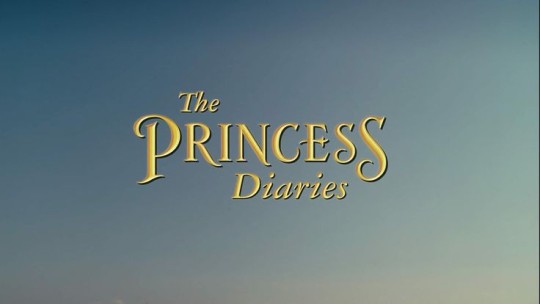
The princess diaries, 1 and 2, are forever on the list of my favorite movies. Girls all over the world feel for Mia and I'm no exception, I almost always cry during certain scenes and I'm amazed again and again by how relatable and real she is, by how those movies speak to young girls.
I've decided to break down the main themes in the two movies by analyzing nakshatras of the people involved.
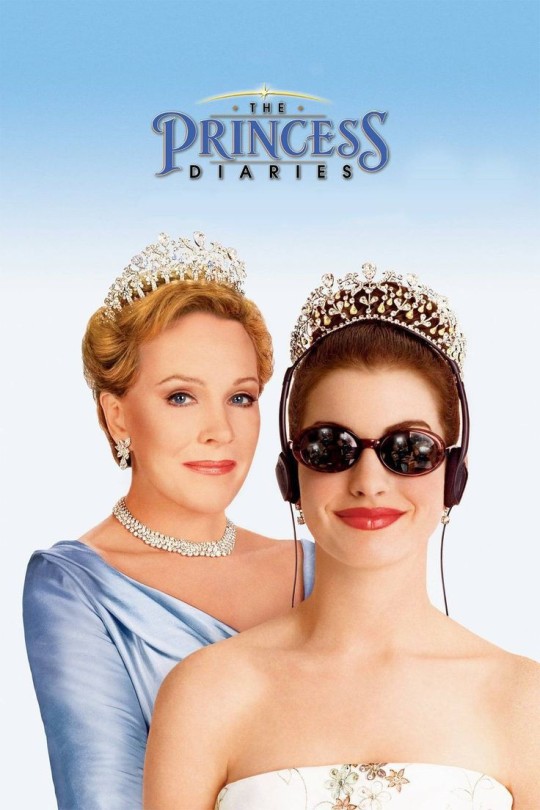
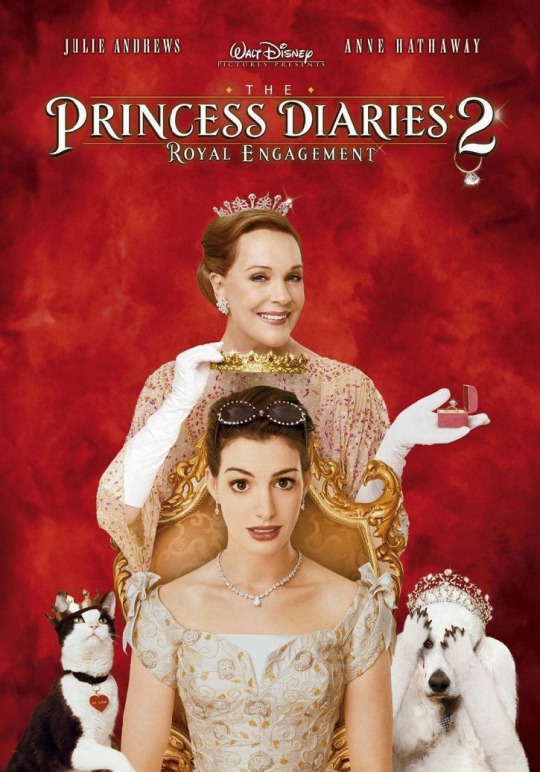
A quick recap of what the story is about: Mia is a 15 year old teenager living in San Francisco with her mother. She's clumsy, awkward and has no self esteem. One day, her estranged grandmother comes to visit her from Europe to tell her that she's the only legitimate heir to rule a small country- Genovia.
Director of the movies, Garry Marshall has Ketu in Magha. Magha is about ancestors, bloodlines and it's also associated with royalty (Magha begins the signs of Leo). Ketu in a chart represents a person's primal creative energy. This explains why he was drawn to a story about royalty. One interesting fact to note is that Gary Marshall made two very iconic movies (Pretty Woman and Runaway Bride) starring Julia Roberts who has been a kind of muse to him and who has Magha moon. This is also a pattern with directors and actors, one example I can think of is Kirsten Dunst (Ashlesha moon, Purva Ashadha Ketu) being a muse to Sofia Coppola (Purva Ashadha moon, Ashlesha Ketu).
Anyways, let's get back to The Princess Diaries and analyze the heart of the two movies- the relationship between Mia and her grandmother, queen Clarisse.
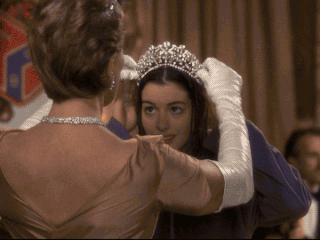
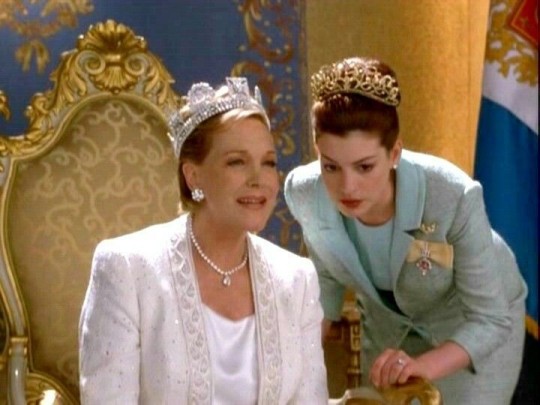
Anne Hathaway - Hasta moon, Vishakha sun, Jyeshta rising
Julie Andrews - Vishakha moon, Hasta sun, Uttara Phalguni rising
SPOILER ALERT
Part 1
Hasta- strong females
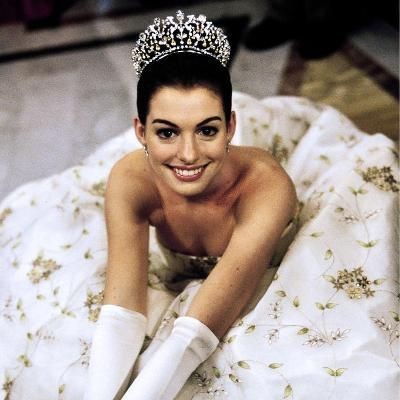
The second movie's main theme is about female empowerment and independence. When the parliament refuses to let Mia rule without a husband, she has 30 days to arrange a marriage and she's willing to do it, just because she wants to rule so much that's she's ready to make such a sacrifice. At the last second she breaks down at her wedding, unable to be betray herself and finds courage inside her to make the parliament change their minds. She succeds and becomes queen without a husband.
Hasta is all about female empowerment but unlike Bharani, it's in a non-sexual, celibate way. Hasta, as a woman, completely rejects almost all male influence and is capable of being self-reliant, only opening up to rare men who she deems worthy. Hasta is the female that does not need a man and in that way, is a safe and empowering place for women.
There's a scene in the second movie where Mia stops the parade to defend a small girl from boys who were bullying her. She tells her how to be a princess and empowers her, letting her and the other kids join the parade. During the monologue at the end, when Mia is talking to the parliament at her wedding, we see women accross the country intently listening to her on the television, shushing the men . 😆
Part 2
Vishakha - joining opposites
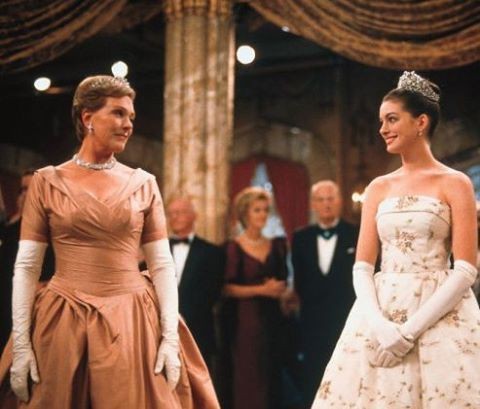
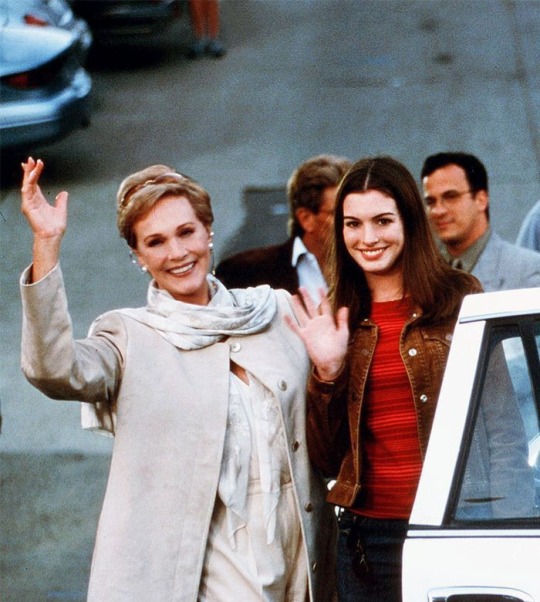
Like Hasta, both Anne Hathaway and Julie Andrews have Vishakha in their luminaries. Vishakha nakshatra is about joining opposites. It begins in the sign of Libra (partnerships, agreements, relationships, compromise) with its last quarter being in Scorpio (death, transformation, occult). Vishakha is ruled by the gods Indra and Agni- the lightning and fire gods. It's about energized ebthuasiasm, cultivating something over time, about using the pent up energy or anger. It's another name is Radha ("the gift", hence the next nakshatra being Anuradha- "after the gift".)
"The gift" is not just good, it can also be unwelcome, like in Mia's case, when she was angered by the revelation that she's a princess. Queen Clarisse and Mia are very different from each other, but neither had a choice but to compromise and agree to a bargain. They learn to appreciate their differences and embrace their similarities, thus, joining opposite forces.
They do have misunderstandings, but that's part of all relationships and eventually they bond deeply as they realize they have the same goal. Vishakha is also connected to anger and the little outbursts they both have definitely show that. One great example is when Mia ruins Lana's (her bully's) outfit and calls her a jerk in front of everyone after always just silently ignoring her remarks.
Joining opposites in this movie is not just about Mia and the Queen, it's also about the two cultures, also about the first movie being a high school drama as well as a fairytale for young girls.
Part 3
Jyeshta - from underdog to the ruler


"Courage is not the absence of fear, but rather the judgement that something else is more important than fear."
-Mia's father to her in a letter
To me, Jyeshta is connected to the underdog who succeeds despite all odds. Jyeshta 's power is to "rise, conquer and gain courage in battle". It's the stage of intense competition. Its deity is Indra- lightning god and the king of the gods, like Vishakha. We see other kids bully Mia in the first film but she slowly places herself above it, making her point (by taking her little revenge on Lana) and then not engaging with them anymore, as she realizes her own self- worth.
A major point in the movie is when she decides not to run away despite being scared to speak to the public, showing her true courage.
Besides Indra- the king of the gods, another deity associated with Jyeshta is Dhumavati- the hag goddess who is eternally hungry. Because of this, I think Jyeshta is associated with grandmothers and our relationship to them. I personally have exalted Ketu in Jyeshta and I was practically raised by my father's late mother (unlike my sibling, mind you. I'm the eldest) and I still have a close relationship with my mother's mother. Mia, played by Jyeshta ascendant Anne Hathaway, also has a very special relationship with her grandmother.
So, in the end, the bullied underdog became a princess and eventually- a queen.
Some bonuses:
Uttara Phalguni is associated with gaining wealth and privileges from partnerships. Uttara Phalguni ascendant Julie Andrews playing queen Clarisse, who became a royal by marriage, confirms that.
Heather Mattarazo (Lily) and Anne Hathaway were born only a few days apart, hence their charts being similar and them playing best friends.
So, this is it. If you found this interesting, please, interact with me, like, comment, reblog. Take care 🤍
#the princess diaries#vedic astrology#astrology#nakshatras#astrology observations#hasta#hasta nakshatra#vishakha#vishakha nakshatra#jyeshta#jyestha#jyeshta nakshatra#jyestha nakshatra#astro notes#astrology tumblr#sidereal astrology#Spotify#magha#magha nakshatra
249 notes
·
View notes
Text
Krishna: a character adored for over two thousand years, revered as one of the most significant political masterminds of the ancient world with his words forming the philosophical core of the country today. Concurrently, he is the god shrouded in inimitable domesticity- as a friend, a lover, and a child. No other deity in the Hindu pantheon has probably achieved as dear a position in the hearts of people as this flute-wielding cowherd of Gokula.
For generations, he has shined as the muse of countless poetfolk, of unfinished business, of unspoken desires and of repressed lovers' qualms. In Meera's longing for her marble beloved, and in Kothai's dulcet dreams of a celestial wedding, Krishna blossoms not as a warrior, but rather as a confidante of young women- the keeper of all secrets.
Curse, o ye, this wedding of devotion,
For I was better off unmarried,
Writes the lovestruck Nawab Sadiq Hilm,
I was well enough at my mother's;
Oh, why did I pine for him?!
Who am I, or what: go ask Rizwan, the gatekeeper
For heaven has been rejected by my forebearers!
He says, in a nostalgic ode to the cowmaids from old tales. To the ones that massage the dust off their feet on Krishna's fevered forehead to soothe his illness, even as the apparent disrespect dooms their afterlives.
Jayadeva notes a more rugged form of Krishna, one that is almost hungry for love. His Radha smiles down upon Radharaman Dutta's kalankini. Of course, she would accept even infamy if it was in relation to her Krishna. However, in time, this epithet has been reclaimed as a celebration of the meteoric, tempestuous love that this unseemly duo had carved out for themselves of the pages of a mostly unwilling history.
Tagore's Krishna is mysterious, eagerly anticipated but rarely seen. Rather, here Radha's pining is crushing and all-encompassing, inherited from Chandidas' virahini. Radha's guttural desire to transform Krishna into herself, subjecting him to the same suffering that she undergoes as a woman in love with a furious ideology more than a man, reverberates eerily against the lighthearted cross-dressing tale of Surdas'.
As often as bards favour the songs extolling the love of the cowherd and the wedded maiden, Krishna's wives are seldom accorded any thought outside of Vasudeva's family tree. Their silence speaks to the stringent rules of a typical patriarchal household. Some of them do speak, and hence Satyabhama becomes conceited and Kalindi wayward. However, the mere few lines that they are mercifully allotted in the text are enough to speak to their resilience. The lines inadvertently hold up a window to the million unspoken words and unexchanged glances. It speaks to the long years, happy and sad. It speaks to the nights of waiting for the beloved to return. It speaks to the quiet lunches in curtained rooms and taste tests in the kitchen.
Each of Krishna's eight wives has their own life, and their own equation with Krishna. Each of their distinct personalities, coupled with their unique introductions to the prince has the potential to bring a distinct flavour to the story of Krishna, the statesman. The understanding that Krishna's heart belonged first to Vrindavana and then to his ambition, must have weighed somewhat on their hearts and yet, the choice to patch up the battle-hardened cowherd, after every blow, sans complaint, and send him out into the world as the architect of history, must have demanded restraint.
The distinct turn of events that brings each of the chief eight queens to Krishna's is quite interesting. Rukmini, the first, demonstrates heart, even if it is born out of desperation. Seizing control of her life, she sends a message, relying solely on rumours of his compassion. Her gamble yields returns manifold as Krishna not only rescues her from an unwanted marriage, but instates her as his chief consort, elevating her, alongside himself, to a divine status. Far from the impulsiveness of her youth, Pandhari's Rakhumai, astute beside her beloved, proudly bears a conch-shell, calling for harmony and community. In life as well, Rukmini brings to Krishna much needed stability, and oversees the blossoming of the city of Dwarika as well as Krishna's growing household.
Jambavati and Satyabhama are given in marriage to the prince by their respective fathers and do not seem to have much of a voice at the time. Jambavati fulfills an ancient destiny, a forgotten promise, then going on to mother the child that ultimately brings about the demise of the Yadava clan. Satyabhama, though often maligned with unfair accusations, is self-reliant. Making no attempt to hide herself from the eye of society, takes her rightful place beside Krishna, not on a throne, but by his side in battlefields. Kalindi however, is an extremely interesting character in Krishna's story. Enmeshed between mortal and divine, she exists as neither. Chancing upon the prince, she unabashedly declares her intentions to be married, and yet she is uncharacteristically silent after her marriage. Lakshmana and Mitravinda, are both won in conquest. They might have been able to sympathize with Rukmini, given their kin had turned against them, on account of their choice of a life partner. Bhadra, on the other hand, has no fancy contests to boast of, or an adventurous rescue. She marries Krishna at the behest of her brother, the only highlight being the arduous journey she undertakes from Kekaya to Dwarika.
After their marriages, these women practically disappear from the narrative until their last moments. We can assume that they were all presumably content with a life outside the spotlight. One can only hope to be privy to their lives after marriage, to know their dreams, nightmares and daily chores. They enter Krishna's life at crucial junctions, and I choose to believe they each had a unique effect on Krishna's worldview, bringing with them a fresh outlook into the mostly stagnant golden city.
#krishna#radha#original writing#mahabharata#hindu mythology#rukmini#satyabhama#kalindi#desi tumblr#ehi murare#prologue#jambavati#mitravinda#lakshmana#bhadra#nagnajiti
161 notes
·
View notes
Text
y'all can't tell me that despite being an ardent varadha hater, radha rama isn't a varadeva shipper, albeit a reluctant one, or at least doesn't acknowledge their unique, intense and *cough* homoerotic *cough* relationship. why else would she go to such lengths to take revenge on both and exploit their deep connection if not by plotting them against each other, knowing it will inflict the most profound pain on both. after all, only varadeva can kill each other, if anyone else so much as touches one, the other will skin them alive- (we have seen that this is the case for both, with the way deva cut off narang's hand AND head for touching and talking bad about varadha (the theatrics involving narang's head rolling to rest upon varadha's feet was just chef's kiss) while varadha was willing to give away bhargat, his largest territory and in turn, accept years of humiliation and torture, to save deva and his mother, not to mention the threats he was spewing as he angrily walked towards ranga's father). she could have simply thought of another plan where she could have taken them both in one go, but no- she wanted them to suffer, and suffer bad. and how about the fact that she literally called deva "varadha raja mannar ka salaar". like, that one line is so romantic, carrying a subtle undertone of endearment, hinting at a closeness beyond what meets the eye. i have no comments on that scene other than, damn, girl knows her facts-
68 notes
·
View notes
Text

4 notes
·
View notes
Text
I went to meet my mother, Goddess Tulaja Bhavani, for the Brahma Aarati. My Devī is so attractive that it feels like she's pulling me back to her every moment. I wish to lay on her lap and play with her. I wish to serve her lotus feet. I wish for her to grant me deeper bhakti. I wish to hold her so close to me so she won't run away lol.
🌹 ॐ ह्रीं श्रीं तुळजा देव्यै नमः 🌹

7 notes
·
View notes
Text
Salaar Analysis: Mahara Women!

We were introduced to the Mahara women and their plight when Deva entered Khanshar as Varadha's one man army. We watched a young girl being taken away in a vehicle, while another young girl was running after them. We got to know more about these women from Baba, when he described Mahara as poultry farms, except there were no hens. The meaning of this statement would later become clear, when Vishnu's disgusting actions were shown in detail. Even though, the scene explained about their conditions, we were still left clueless about their affinity to the three tribes of Khanshar.
This issue has been discussed too many times in the fandom and mostly ended with the conclusion that Mahara used to be one of Varadha's territory. Varadha used to have three territories, one Dora territory, Bhargat (that he gave up for Deva) and two Kapus, one of which was Pathran. But Varadha during the ceasefire voting, only held one vote as Kapus of Pathran. Hence, a common HC in fandom that Varadha lost Mahara before 2010. This theory could explain why Vishnu thought of humiliating Varadha by making him watch him assaulting those women. Another common HC in fandom is that Varadha's mother belonged to the Mahara.


There is a second theory about their origin that I have seen in a few YouTube videos. They speculate that Mahara women have some connections with Shiva Mannar and Shouryangas tribe. In the above photo, we could see that the bell-like ornament worn by Shiva Mannar, was also a part of Mahara women's attire. But neither Varadha nor Raja Mannar ever wore this ornament as Kartha, so it was definitely not a Mannarsi ornament. There was one thing that changed when the regime passed from Shiva Mannar to Raja Mannar, the decimation of the Shouryangas tribe. I have even watched a YouTube video stating that Shiva Mannar also had two wives like his son, one of them being Raja Mannar's mother and the other was a woman from Shouryangas tribe. And he wore that ornament to honour her.
I am not completely sold on this idea of Shiva Mannar's wife being a Shouryangas . But I do believe that there is a connection between them and Mahara women. And before I state my reasons, I want to point out something.
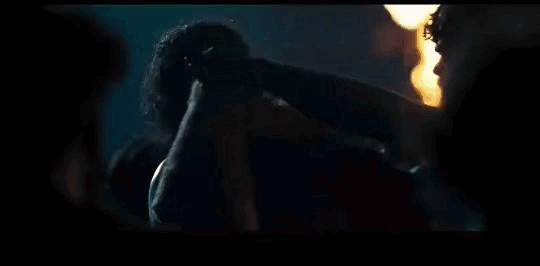

When the presence of Shouryangas was revealed during the climax of Khanshar, the cyan colour palette was used to portray them. Deva's Shouryangas heritage was also shown by colouring his upper body cyan. This colour is also used as a hidden clue in many scenes of the movie, pointing towards Deva being a Shouryangas.
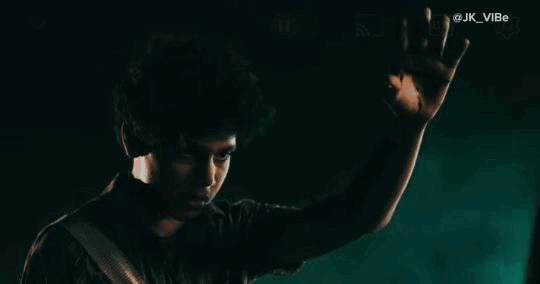
During the promise scene.
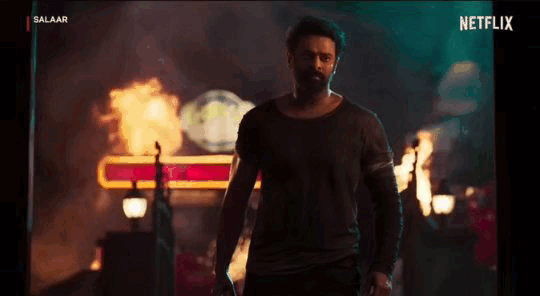
During 2017 Deva's entry.
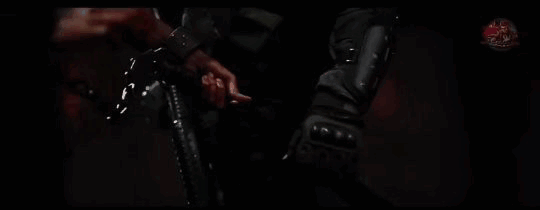
Again for a split second when he took the sword from the soldier before decapitating Naarang.

When Radha Rama asked the Mannar army to be alert in the entire Khanshar, depicting the rising Shouryangas threat.
So, when I was rewatching Salaar again last Friday, I noticed this colour again in the background during the 'Aaru Sethulunnaa' song, behind the Mahara women.

This shows that Mahara women have some connections to the Shouryangas tribe. Either they were the women from the Shouryangas tribe captured during the massacre and kept captives in Mahara all these years or they were a kind of sub-tribe, that forms a small part of the larger Shouryangas tribe. Or they could be people living in Shouryangas territory under their protection.
This could also explain Shiva Mannar wearing those bell-like ornaments. As the leader of the three tribes, he could wear other tribes ornaments to honour them or show his neutral stance.
Varadha's connection to Mahara is still a mystery. And I hope we get some clear answers about it in part 2.
64 notes
·
View notes
Text
i imagine vrindavan to be chaotic and messy in the best way possible. krishna playing his flute means that everyone will stop whatever they are doing. radha and the sakhis constantly try to outwit this makhan chor but to no avail. every prank of theirs is reported by the parrots that krishna bribes feeds everyday for this entire purpose.
mother yashoda and nanda maharaj are doing their duties when krishna's elder brother balram rushes in, throwing accusations against krishna.
krishna refutes them and the parents share a fond look with each other while their mischevous children argue.
dwarka is no less chaotic, perhaps tempered by the maturity krishna shows. the makhan chor of braj remains with the people of vrindavan, gokul, barsana and only them. dwarka sees the dawn of yaduvanshi vāsudev shri krishna. a new leaf of the same flower of madhav.
#desiblr#krishnablr#krishna#vrindavan#radha#radhakrishna#rukmini#dwarka#balram#punya.txt#ramblings#kinda suprised my braincells co-ordinated for this#why isn't rukminikrishna a tag?#rest of the ashtabharyas where?#que the queue
209 notes
·
View notes
Text

#anandamayi ma#divine mother#spirtualquotes#jai ma#saints of india#spiritualawakening#divine love#goddess among us#om ma sharanam#divine feminine#god is love#radha krishna
2 notes
·
View notes
Text

☀ SHRI RADHA ☀
“Shri Radha is parama-devata, the Supreme Goddess, and She is worshipable for everyone. She is the protectress of all, and She is the mother of the entire universe.”~Caitanya Caritamrita, Adi 4.89
47 notes
·
View notes